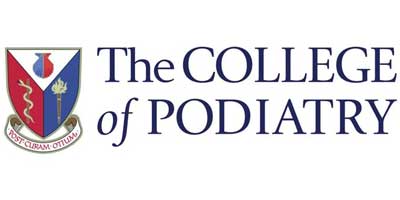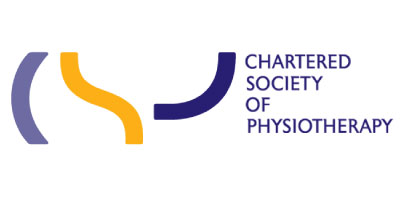Podiatry
Call us today on 01843 808212
What is Podiatry?
Podiatry involves the assessment, diagnosis and treatment of any problem relating to the foot whether it is a fungal nail infection, corn or a biomechanical abnormality.
Many patients will need regular appointments to maintain pain free feet and this may involve regular nail cutting, the removal of corns and callous, the provision of insoles and foot health education.
Regular, general foot care will improve pain and mobility.
Diabetics are at risk from developing foot problems and it is essential that regular diabetic foot health checks are undertaken.
Podiatrists also carry out surgery on in-growing toenails and biomechanical assessments to treat postural problems within the foot.
Services provided at Hart & Bones
Routine podiatry treatment of corns, callous and nail cutting.
Custom made insoles and off the shelf orthotics.
Diabetic foot assessments.
General treatments when performed regularly provide maintenance of foot health, preventing pain and further complications. Your Podiatrist will provide you with a unique treatment plan that is suited to you and your condition.
Common conditions that may be helped by the Podiatry team at Hart & Bones:
- Fungal nail infections
- Bunions
- Clawed toes
- Gout
- Flat feet
- Heel pain
- Hallux rigidus
- Hammer toes
- Metatarsalgia
- Corns and callous
- Thick and deformed nails
- Plantar fasciitis
- The rheumatoid foot
- Athletes foot
- In-growing toe nails
- Verrucae
- Postural problems within the foot
- Foot problems relating to diabetes
Diabetic Foot Assessment
Diabetic patients are at an increased risk of developing problems with their feet. It is recommended to have a foot assessment performed by a Podiatrist regularly and ongoing podiatry care if necessary.
Depending on your level of risk, a diabetic foot assessment every 3 – 12 months is advisable. Your level of risk is determined by the number of diabetic foot complications you have.
Long term lower limb problems associated with diabetes
- Loss of sensation
- Decreased blood supply to feet
- Increased risk of infection
- Foot ulcers and amputation
The assessment includes:
Neurological Testing – pain, pressure, muscle strength and control, proprioception.
Vascular Assessment – pulses assessed using a Doppler Ultrasound machine, capillary filling time, temperature.
Your Podiatrist at Hart & Bones will give you diabetic foot health education and provide you with advice on daily diabetic foot care and preventative strategies for the complications of diabetes. You may also be advised to have regular routine treatment
A reduced circulation can cause:
- Delayed healing
- Cold feet
- Chilblains
- Muscle cramping
- Poor skin and nails
- Reduction in hair growth
Orthotics
Orthotics are insoles designed to enhance the motion of your foot and body and can be made from a range of materials. They work by modifying the forces between your foot and the ground.
An orthotic may help with:
- Aching feet
- Morton’s neuroma
- Heel pain
- Corns and callous
- Plantar Fasciitis
- Soreness in the arch
- Arthritic pain
Verruca treatment
Verruca or plantar warts are caused by the Human Papilloma Virus and are highly contagious. Most people suffer them as a child and build up a natural immunity, so they are not so common in adults.
They can be very painful.
Most will clear up without treatment, especially with children. If it becomes painful then there are many treatments that can be bought over the counter and used at home.
If home treatment has failed, it is worth seeing one of us who will be able to give advice and discuss available treatment options such as cryotherapy, the use of caustics or alternative remedies.
Appointment times
Monday – Thursday
8.30am – 5.00pm
Over the years the podiatry team has developed experience in all aspects of podiatric care, but in certain cases, patients may be referred to colleagues with specialist knowledge.
Your first appointment
On your first visit to Hart & Bones, you will be asked to fill in a form giving your contact details and sign for treatment consent. You will also need to read and sign our privacy policy.
Once in the treatment room your Podiatrist will take a full medical history as well as asking about the foot problem you have.
A treatment plan will be discussed with you which may include foot health education, footwear advice and the possible use of insoles or foot pads. You will then be treated.
A further appointment may be booked although depending on your complaint, this isn’t always necessary.
Other treatments
Pair of custom made insoles: from £25.00
Off the shelf orthotics: from £20.00
Padding materials: from £3.00
Podiatry
Appointment- 30 Minute appointment
- Consultation
- Treatment
- Advice
Meet the therapists

Karen Hart
Podiatrist
01843 808212
info@hartandbones.co.uk
After graduating from the Sussex School of Podiatry in 1988 Karen specialised in Diabetes and Rheumatoid Arthritis, working in the community clinics and hospitals in the Thanet area.
She returned to university part time and gained an honours degree in Podiatric Medicine. Karen began her private practice in 1996 and she now specialises in general podiatric care.

Julian Poulton
Podiatrist
01843 808212
info@hartandbones.co.uk
Julian Poulton is a HCPC Registered Podiatrist with over 35 years of experience having worked in the NHS and private practice.
He specialises in general Podiatry and has worked alongside Karen as her associate since 2013.





